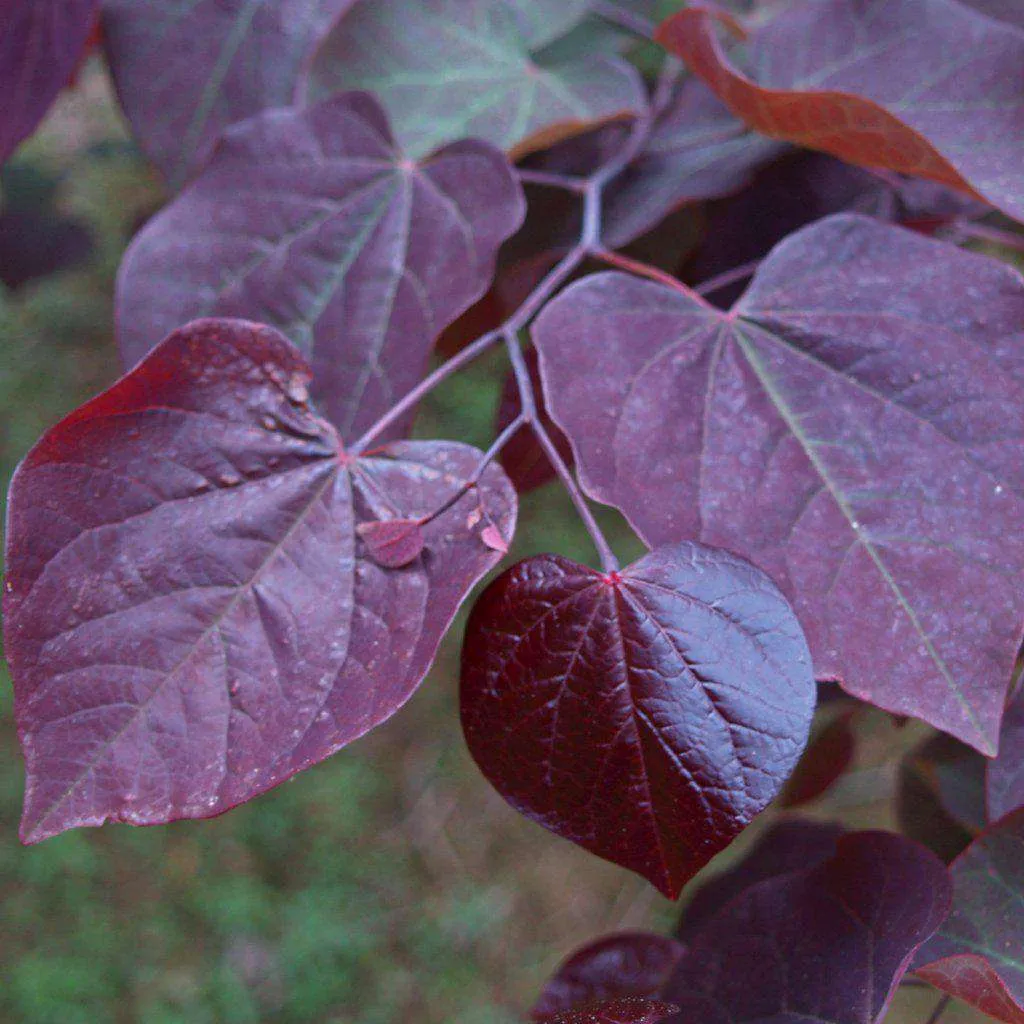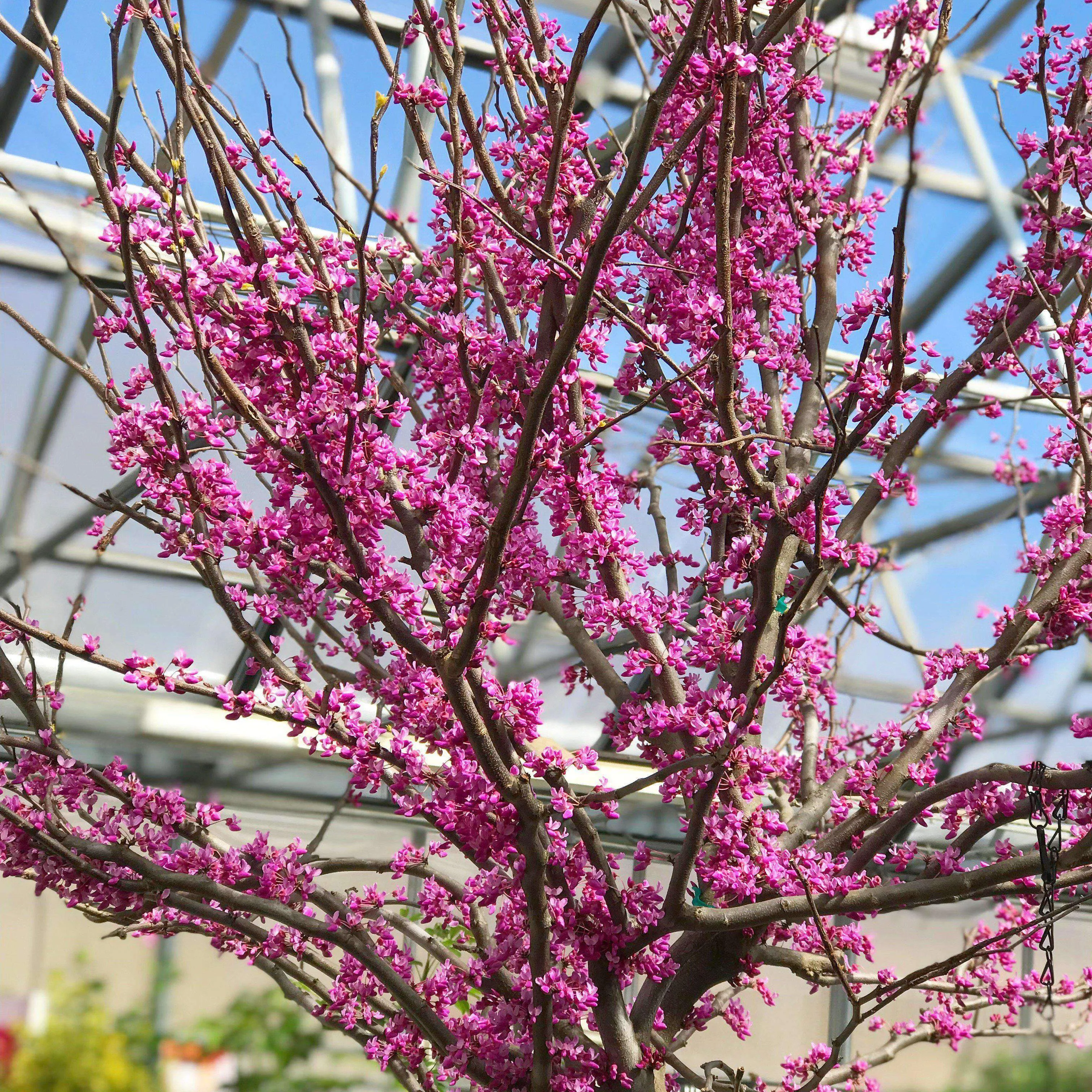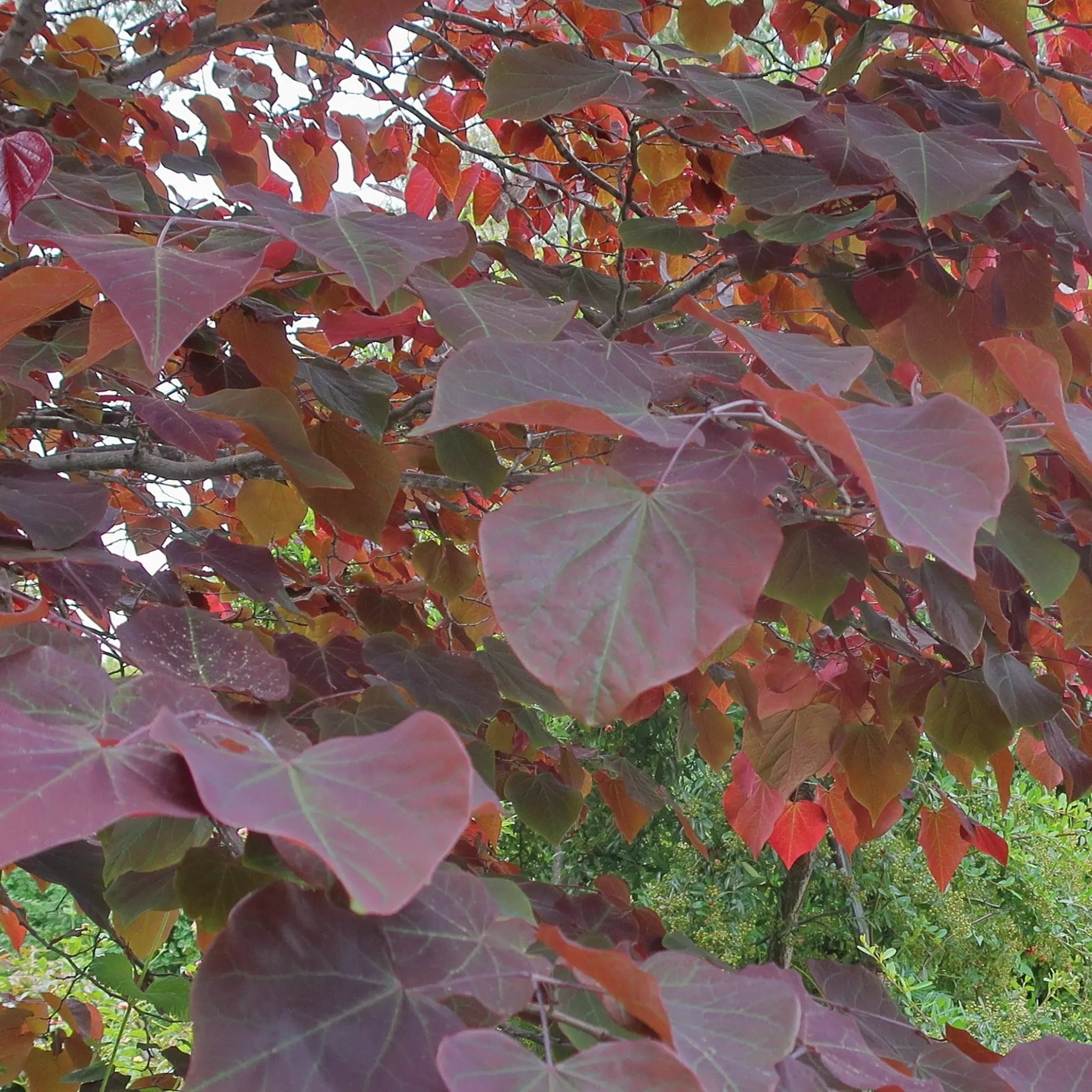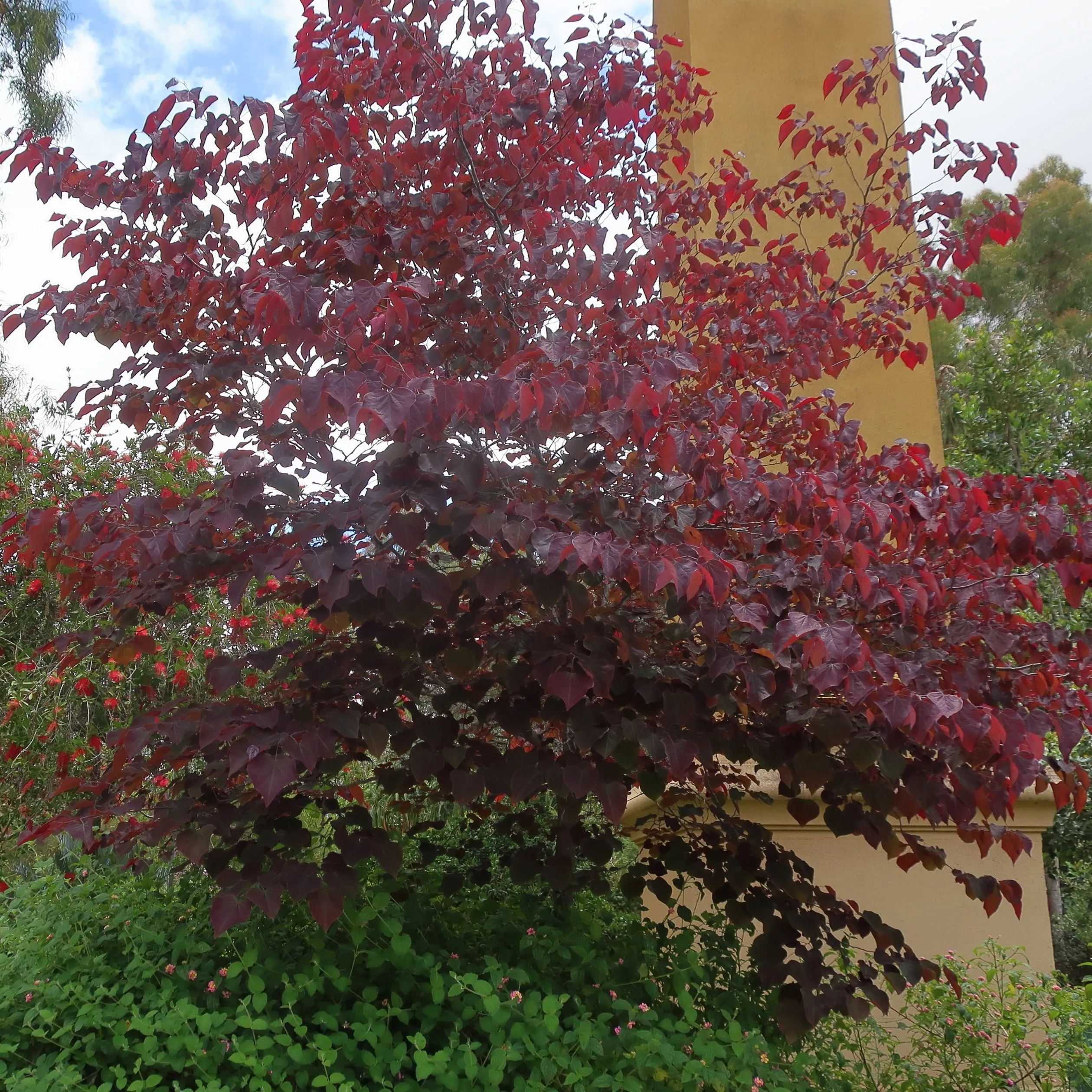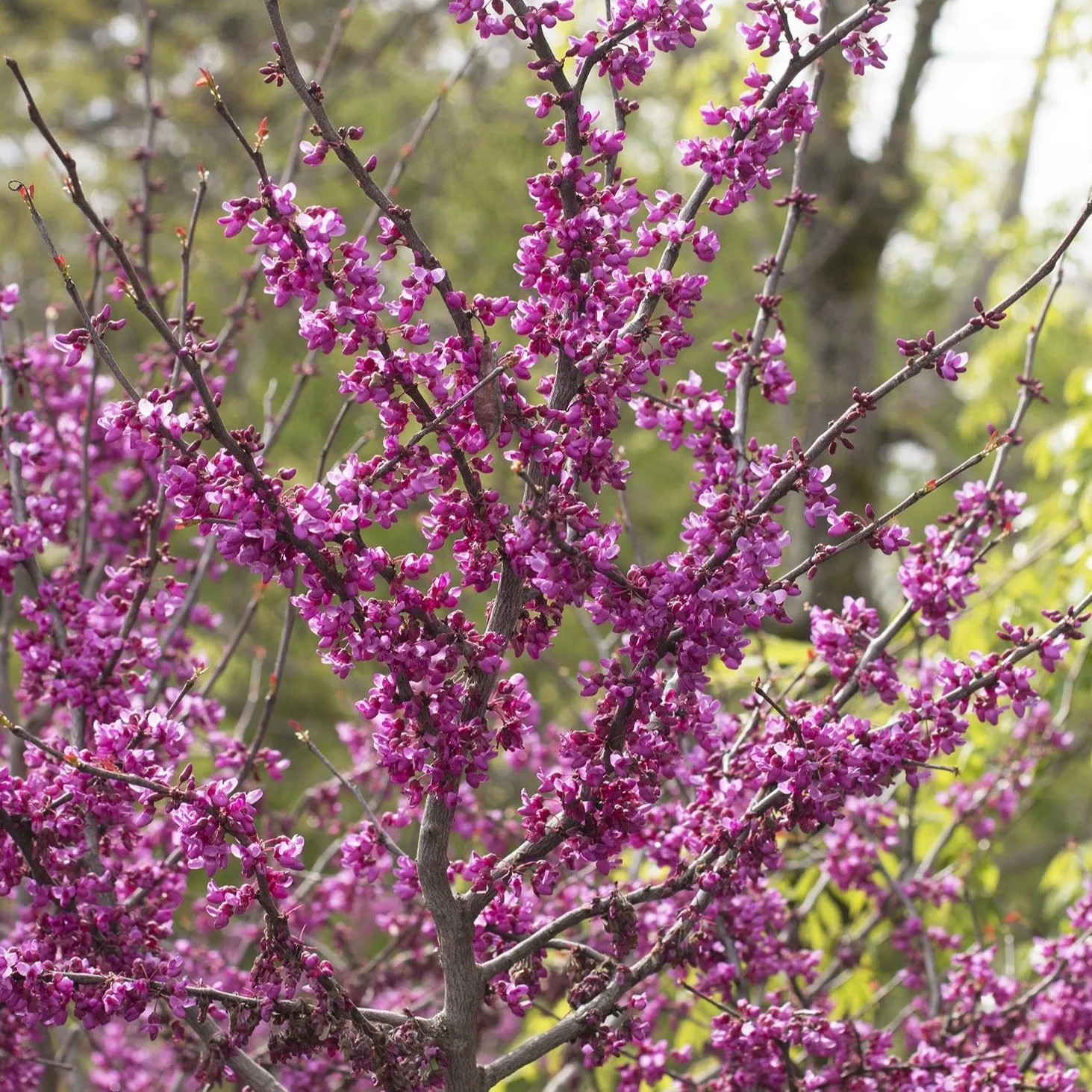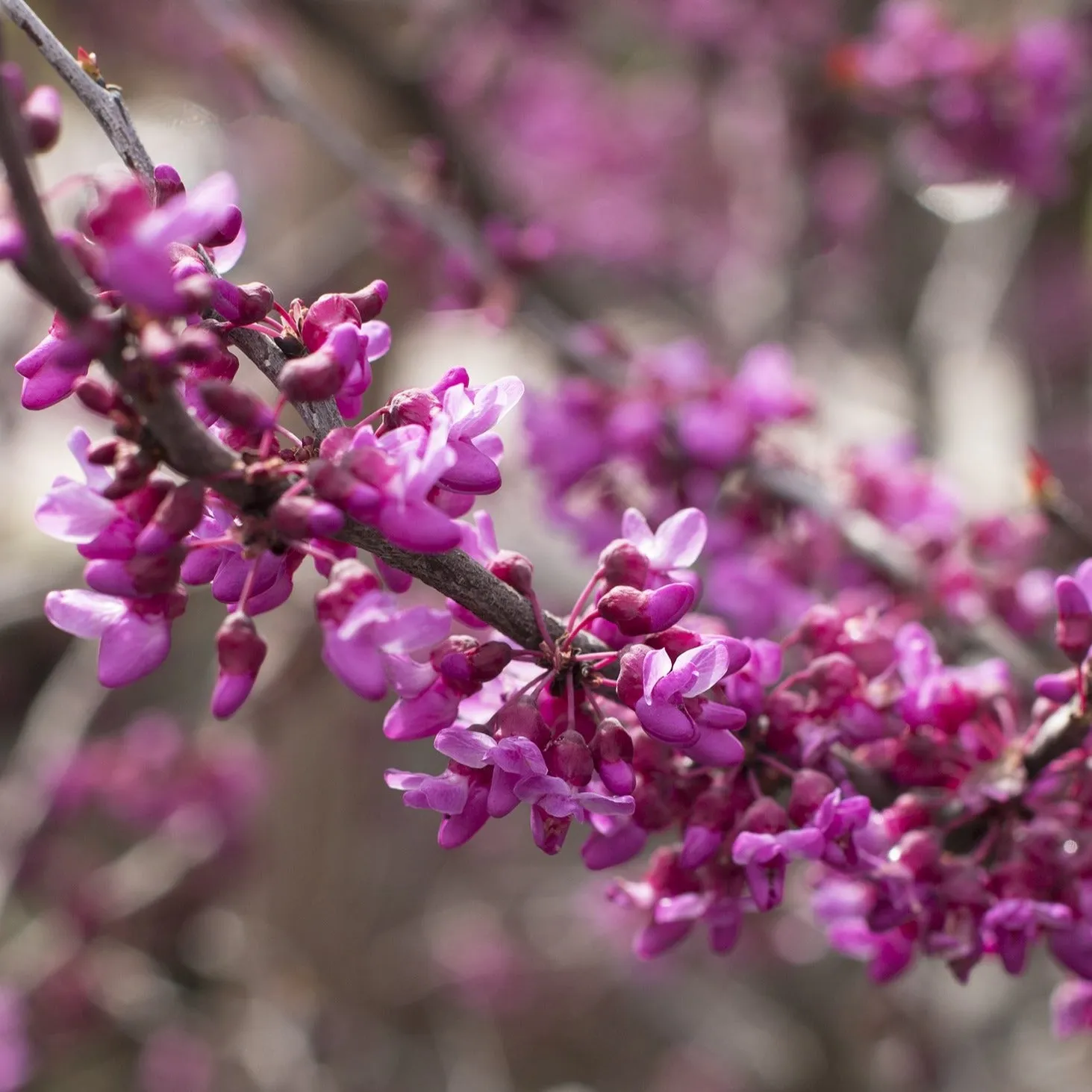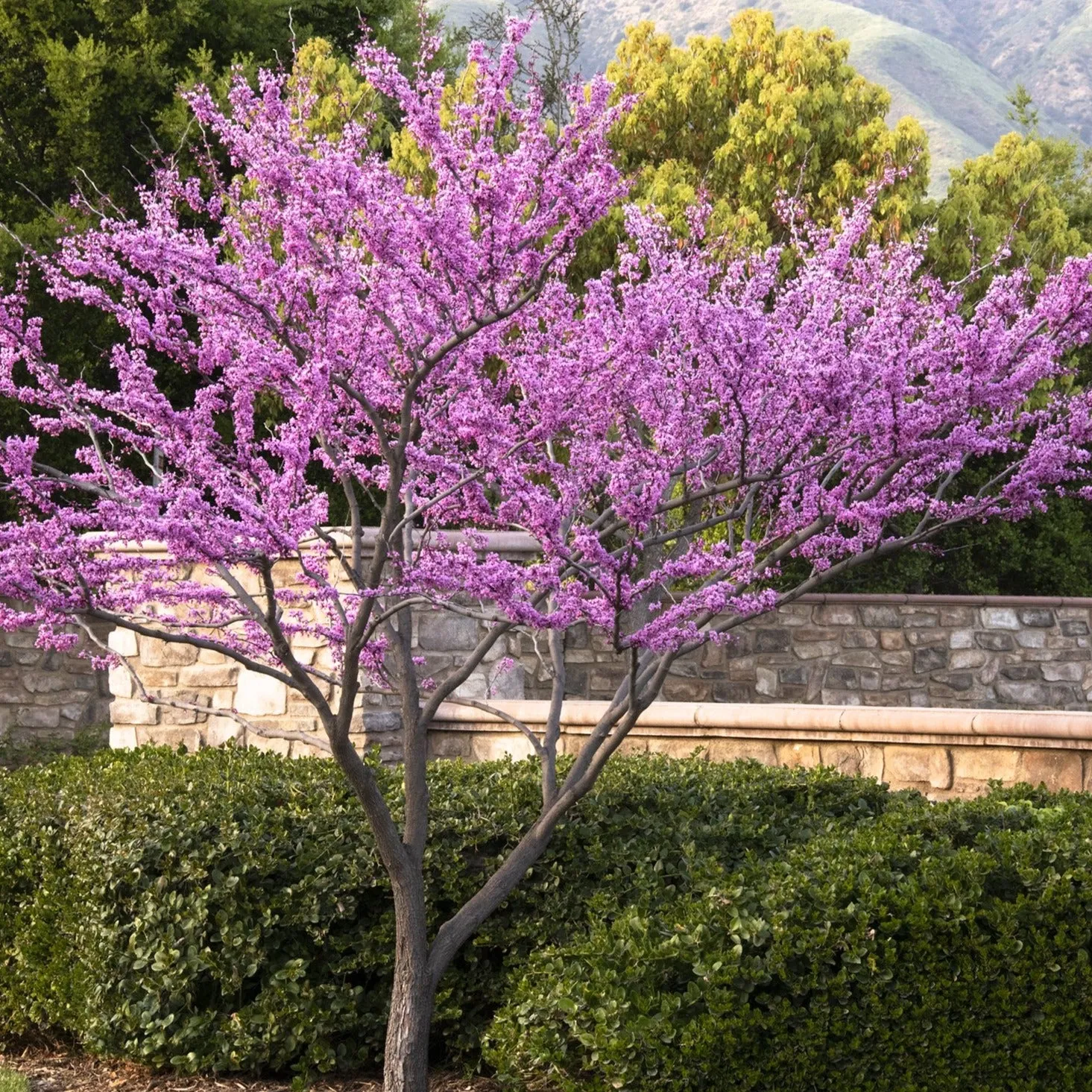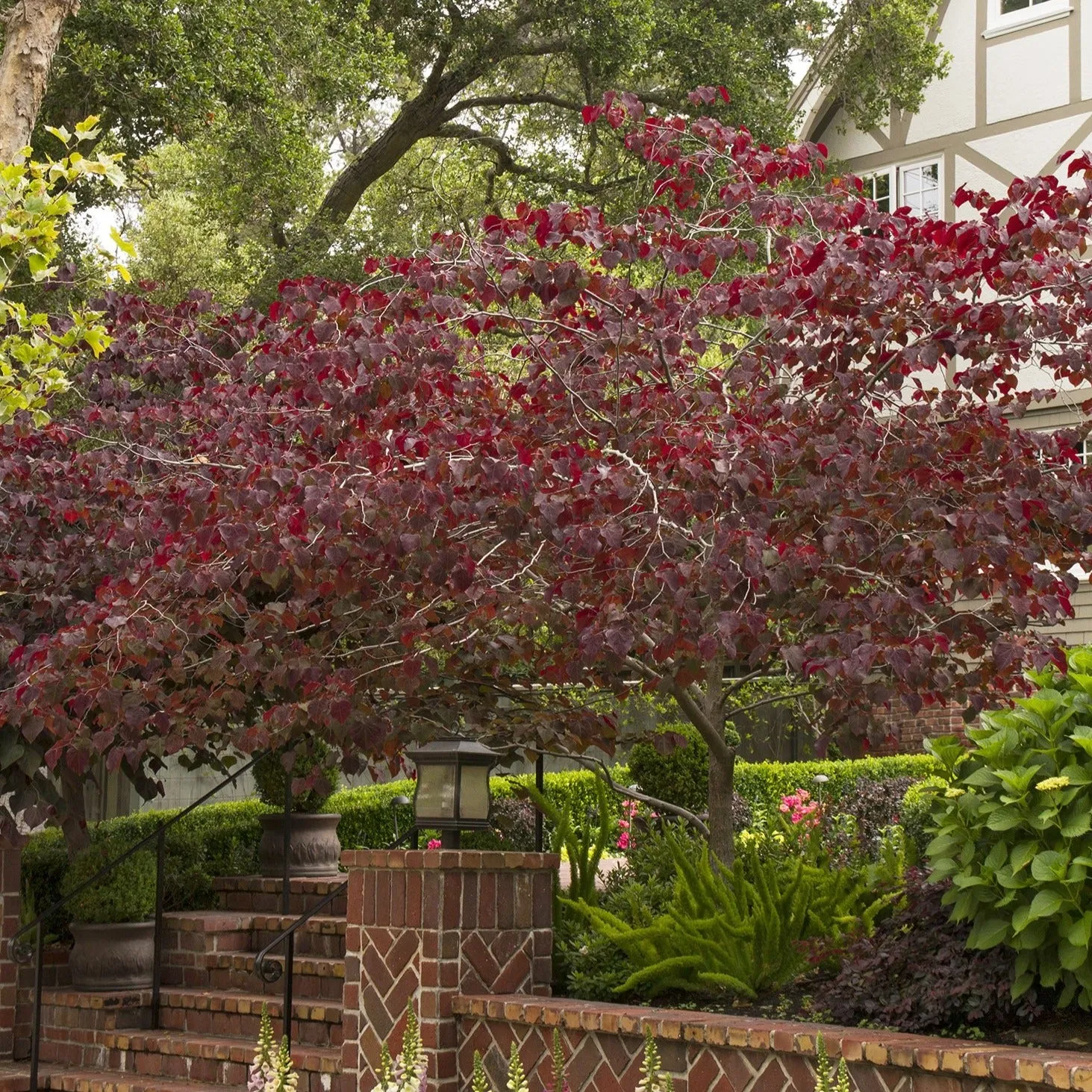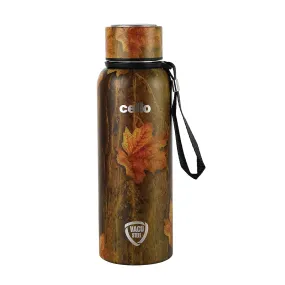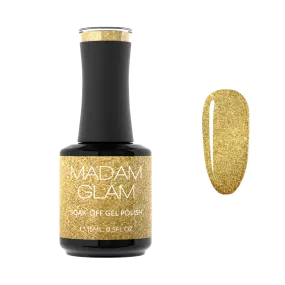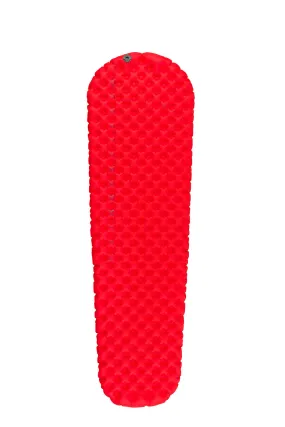Cercis canadensis ‘Forest Pansy’
Despite its cultivar name, ‘Forest Pansy’s blooms more closely resemble intensely rose-colored sweet peas than pansies. They appear in abundant clusters on dark gray branches before the tree’s leaves appear in spring and are followed by burgundy, bean-like seedpods.
Those large, heart shaped leaves also are striking, emerging a glossy bright burgundy and fading to matte purple-green during summer. In autumn , the tree may don a coat of many colors, with foliage that turns burgundy, orange, and yellow before it falls. This deciduous redbud can grow to 30 feet in height and 35 feet in width in USDA zones 5-9—often multi-trunks with a vase-like shape.
Additional Information:
| Latin Name: | Cercis canadensis ‘Forest Pansy’ |
| Plant Type: | Tree |
| Shrub Type: | Deciduous |
| Exposure: | Full Sun, Part shade |
| Deer Resistant: | Yes |
| Mature Height: | 30 Feet |
| Mature Width: | 35 Feet |
| Growth Rate: | Moderate |
| Bloom Time: | Early Spring |
| Flower Colors: | Pink |
| Hardiness Zone: | Zone 5-9 |
| Habit: | Multi-trunks with a vase-like shape |
| Water Needs: | Average |
| Maintenance: | Easy |
| Pruning Time: | Winter |
| Additional attribute: | |
| Native to North America | |
| Dramatic Foliage | |
| Attracts Butterflies | |
| Bird Friendly | |
| Landscape Uses: | |
| Firescaping/Fire Wise, Mass Planting, Specimen |
Culture:
Redbuds, AKA Judas trees, prefer soil which is rich, light, and moist. Since they are averse to soggy conditions, you may need to amend heavy clay soil with compost to make it acceptable to them. However, you should never allow their soil to completely dry out either, as that renders them more vulnerable to disease.
They can grow either in full sun or partial shade in the north, preferably in a somewhat protected location there. They should receive only partial sun in the hottest parts of the south, to help the leaves retain their purplish pigment which tends to fade when nighttime temperatures climb above 70 degrees.
Trim any damaged wood from the tree in early summer, as redbuds are somewhat prone to canker. Since they also have a tendency towards splitting, prune them to create U-shaped rather than V-shaped crotches, and don’t allow side branches to grow to more than half the diameter of the trunk.




